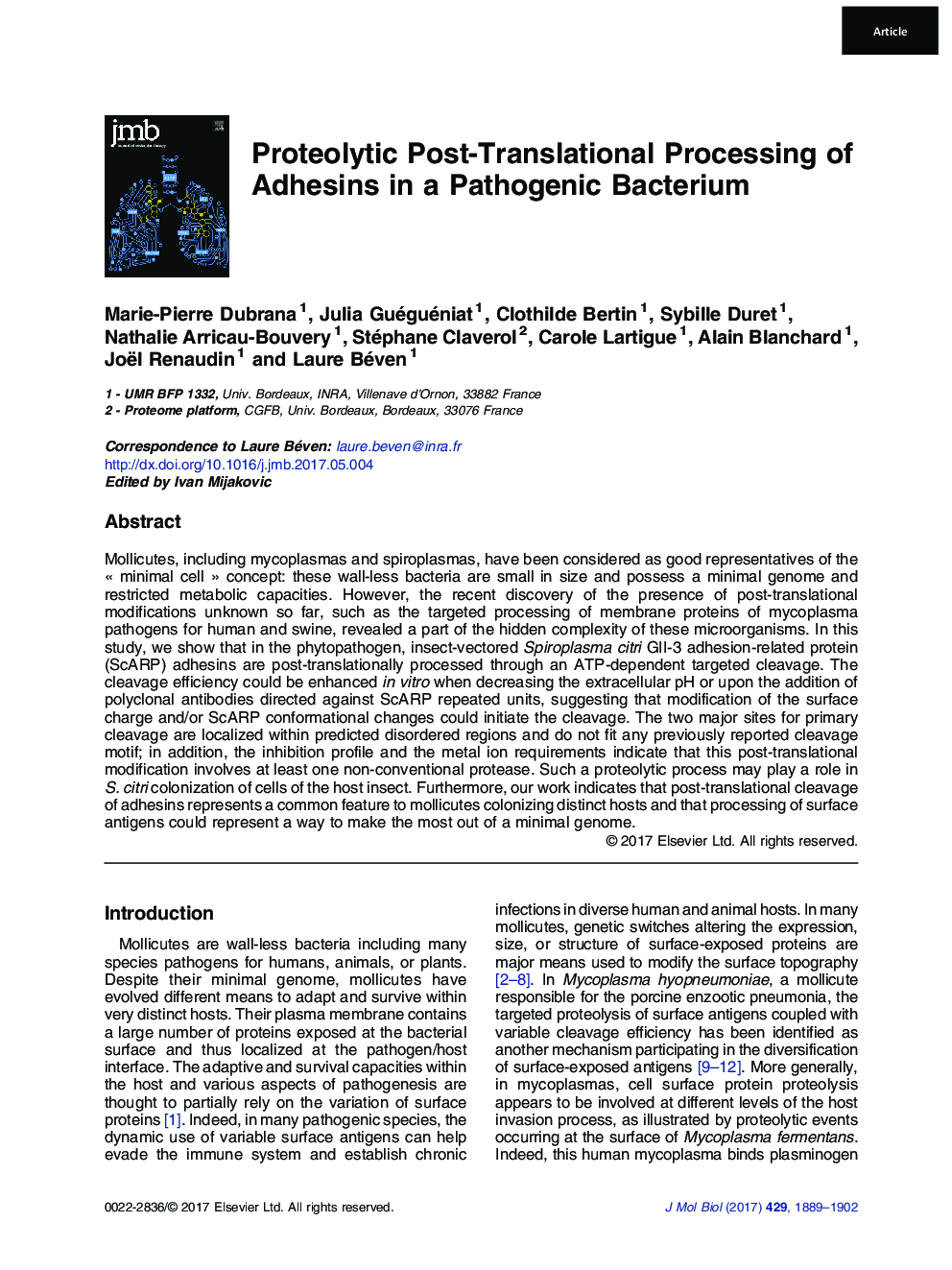| کد مقاله | کد نشریه | سال انتشار | مقاله انگلیسی | نسخه تمام متن |
|---|---|---|---|---|
| 5533299 | 1402113 | 2017 | 14 صفحه PDF | دانلود رایگان |
- Adaptive capacities of mollicutes partially rely on post-translational modifications of surface proteins.
- Adhesins ScARPs are specifically endoproteolyzed in the pathogen S. citri.
- The proteolytic process is ATP-dependent and insensitive to most protease inhibitors.
- ScARPs conformational changes very probably initiate the cleavage.
- Surface antigen proteolytic processing is part of the arsenal for modification of the surface topology in S. citri.
Mollicutes, including mycoplasmas and spiroplasmas, have been considered as good representatives of the « minimal cell » concept: these wall-less bacteria are small in size and possess a minimal genome and restricted metabolic capacities. However, the recent discovery of the presence of post-translational modifications unknown so far, such as the targeted processing of membrane proteins of mycoplasma pathogens for human and swine, revealed a part of the hidden complexity of these microorganisms. In this study, we show that in the phytopathogen, insect-vectored Spiroplasma citri GII-3 adhesion-related protein (ScARP) adhesins are post-translationally processed through an ATP-dependent targeted cleavage. The cleavage efficiency could be enhanced in vitro when decreasing the extracellular pH or upon the addition of polyclonal antibodies directed against ScARP repeated units, suggesting that modification of the surface charge and/or ScARP conformational changes could initiate the cleavage. The two major sites for primary cleavage are localized within predicted disordered regions and do not fit any previously reported cleavage motif; in addition, the inhibition profile and the metal ion requirements indicate that this post-translational modification involves at least one non-conventional protease. Such a proteolytic process may play a role in S. citri colonization of cells of the host insect. Furthermore, our work indicates that post-translational cleavage of adhesins represents a common feature to mollicutes colonizing distinct hosts and that processing of surface antigens could represent a way to make the most out of a minimal genome.
Graphical Abstract210
Journal: Journal of Molecular Biology - Volume 429, Issue 12, 16 June 2017, Pages 1889-1902
